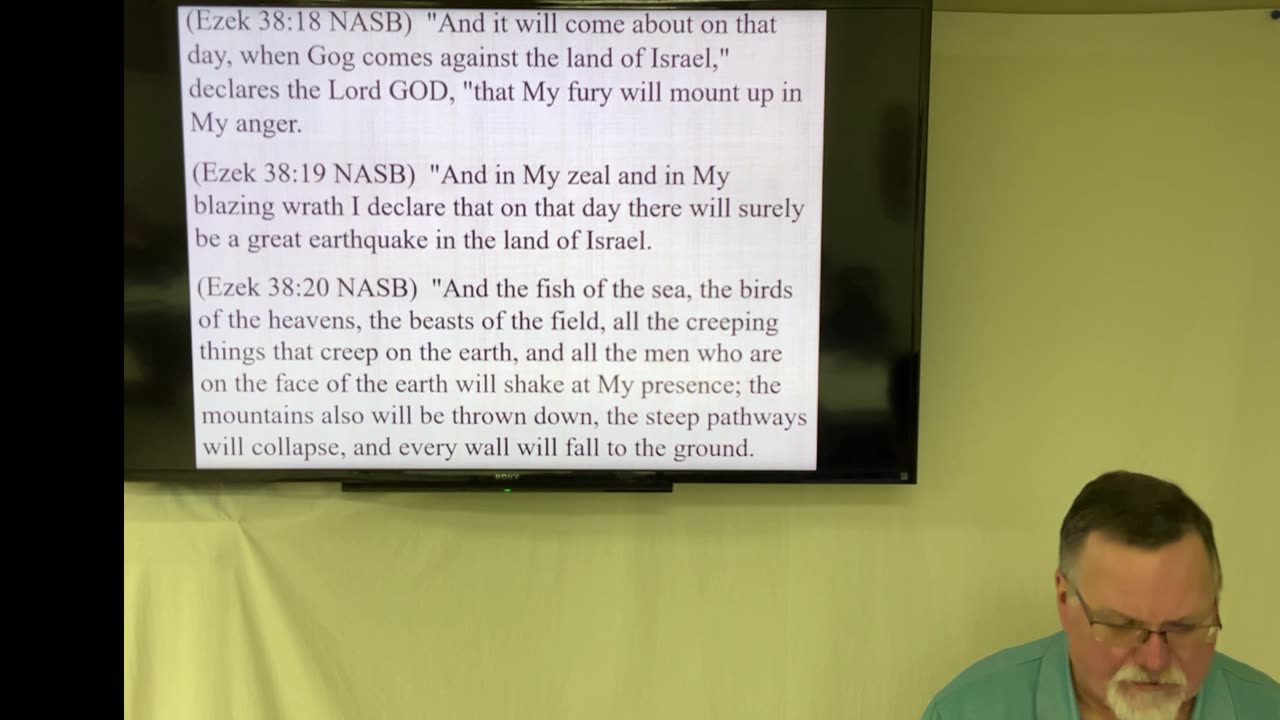Premium Only Content

Isaiah 63 - It is very possible that the "Day of the LORD" is a year in length; by many verses.
Isa 63:4
"For the day of vengeance was in My heart, And My year of redemption has come.
From this verse and others, it is very possible that the Day of Yahweh is a year in length.
Isa 34:8 For the LORD has a day of vengeance, A year of recompense for the cause of Zion.
Isa 61:2 To proclaim the favorable year of the LORD, And the day of vengeance of our God; To comfort all who mourn,
Ezek 4:6
"When you have completed these, you shall lie down a second time, but on your right side, and bear the iniquity of the house of Judah; I have assigned it to you for forty days, a day for each year. Elohim punished Israel for a year according to each day they spied on their Promised Land:
Rev 11:18
"And the nations were enraged, and Thy wrath came, and the time came for the dead to be judged, and the time to give their reward to Thy bond-servants the prophets and to the saints and to those who fear Thy name, the small and the great, and to destroy those who destroy the earth."
We have a quick rundown of the events. The nations were enraged with Israel. Then the wrath of Elohim came down. Then the dead were judged and the righteous were rewarded. There is a specific reference to the dead being judged at the time of the return of Messiah and not at the end of His 1000 year reign (which we will cover in chapter 20). This is also described by Daniel Dan 12:1-2). The words of Yeshua state a single resurrection for the righteous and unrighteous, also John 5:28-29).
Rev 18:8
"For this reason in one day her plagues will come, pestilence and mourning and famine, and she will be burned up with fire; for the Lord God who judges her is strong.
Verse 8 of Revelation 18 states that the plagues will come upon Babylon in one "day." The plagues are described as "pestilence (the word is almost always translated as "death"), mourning, and famine." These things will come upon her in one "day." The Greek word for "day" is the word haymera, which also means a year.2250. hemera, hay-mer'-ah; fem. (with G5610 implied) of a der. of hemai (to sit; akin to the base of G1476) mean. tame, i.e. gentle; day, i.e. (lit.) the time space between dawn and dark, or the whole H24 hours (but several days were usually reckoned by the Jews as inclusive of the parts of both extremes); fig. a period (always defined more or less clearly by the context):--age, + alway, (mid-) day (by day, [-ly]), + for ever, judgment, (day) time, while, years. The wording of the passage seems to indicate a distinct timeframe. Since the passage is speaking of the defeat of an empire, the timeframe is likely to be long as opposed to short. If haymera is referring to a year, then the timeframe would be a Jewish year which is 364.868 days. Using the "day = year" formula as described in Scripture, then we are looking at a timeframe of 364.87 years
River Valley Torah Assembly
-
 DVR
DVR
The Pascal Show
3 hours ago $0.41 earnedBREAKING! Active Shooter In Midtown Manhattan NYC Multiple People Shot!
3.36K -
 10:25
10:25
MattMorseTV
8 hours ago $7.47 earnedVance just DROPPED a NUKE.
15.2K33 -
 LIVE
LIVE
Jokeuhl Gaming and Chat
5 hours agoDARKTIDE - Warhammer 40k w/ Nubes and AoA
77 watching -
 LIVE
LIVE
Shoriantrax
2 hours agoLIVE: Hardcore Chaos in Tarkov – Loot, Die, Repeat!
13 watching -
 LIVE
LIVE
John_Goetz
2 hours agoJohn Gets Gaming - Medal of Honor Vanguard Part 2
18 watching -
 1:29:09
1:29:09
RiftTV
4 hours agoSydney Sweeney Spreading RACIST Propaganda? | The Rift | Guest: Braeden Sorbo + Sarah Stock
32.7K8 -
 LIVE
LIVE
VapinGamers
3 hours ago $0.01 earnedDestiny 2 - The Premium Destiny 2 Experience with the Community! - !rumbot !music
8 watching -
 LIVE
LIVE
We Like Shooting
15 hours agoWe Like Shooting 621 (Gun Podcast)
93 watching -
 2:06:45
2:06:45
PudgeTV
8 hours ago🔵 Mod Mondays Ep 69 | Grimm Hollywood - The 3k on Mod Mondays
12.2K3 -
 2:15:00
2:15:00
megimu32
3 hours agoOTS: Happy Place or Missed Shot? Happy Gilmore 2 Review
16.2K4